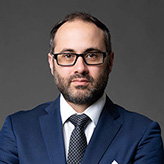June 18, 2025
Proposed Section 899 and Ongoing Canadian Investment in U.S. Securities

As part of the omnibus Republican bill entitled “The One, Big, Beautiful Bill”, proposed section 899 of the Internal Revenue Code (the “Code”) or “Enforcement of Remedies against Unfair Foreign Taxes” could increase U.S. tax rates on certain non-U.S. persons, including both individuals and entities.
The proposed Code section 899 would create a new tax regime targeting residents of “discriminatory foreign countries” that impose “unfair foreign taxes” on U.S. persons, such as the Digital Services Act in Canada.
Unfair foreign taxes generally include taxes imposed under the so-called undertaxed profits rules under OECD Pillar Two, digital services taxes, diverted profits taxes, and other taxes “with a public or stated purpose indicating the tax will be economically borne, directly or indirectly, disproportionately by United States persons.”
Code section 899 proposes higher tax rates on certain USsourced income received by specific foreign entities and individuals. These “applicable persons” include:
- Any government of a “discriminatory foreign country” (as defined in Code section 892).
- Any individual (other than a US citizen or US person) who are tax residents of a “discriminatory foreign country”.
- Foreign corporations (except those majority-owned by US persons) based in a “discriminatory foreign country”.
- Private foundations established in a “discriminatory foreign country”.
- Non-publicly held foreign corporation where applicable persons control more than 50% of the shares.
- Trusts or similar entities whose beneficial ownership is majority-held by applicable persons.
- Foreign partnerships, branches, or other entities linked to a “discriminatory foreign country” as determined by the Secretary.
A “discriminatory foreign country” can be defined as one that imposes “unfair foreign taxes,” which include:
- Undertaxed profits rules (UTPRs) – Taxing global businesses based on where their profits are perceived to be undertaxed.
- Digital services taxes (DSTs) – Levies on revenues from online services and digital businesses.
- Diverted profits taxes (DPTs) – Targeting businesses seen as shifting profits offshore.
In addition, the definition of “unfair foreign taxes” includes certain extraterritorial or discriminatory taxes but only to the extent provided by the Secretary.
While Canada was not specifically highlighted for having a UTPR or DPT, the White House has previously noted that Canada is amongst the nations with a DST.
Essentially, the apparent function appears to be to force other countries to repeal their “unfair foreign taxes”, create an exception for US persons, or be subject to higher tax in the US in response.
The Canada-United States Convention with Respect to Taxes on Income and on Capital (the “Tax Treaty”) has in most cases set a 15% withholding tax rate on investment income earned from US investments and paid to Canadian taxpayers. For instance, the withholding tax rate on individuals is reduced from 30% to 15% in certain accounts such as a non-registered account, tax-free savings account or first home savings account.
If the bill with proposed Code section 899 goes into law in its current form, it is believed that this would largely override the Tax Treaty. This would ultimately make owning U.S. dividend paying stocks less attractive as the realized aftertax return would be diminished by the increase in taxes withheld by the U.S.
For a Registered Retirement Savings Plan (RRSP) or Registered Retirement Income Fund (RRIF), the withholding tax is reduced to 0%. Canadian businesses also see a benefit when earning dividends from their U.S. subsidiaries. Currently, the withholding tax rate that they pay is 5%.
The proposed Code section 899 would see the withholding tax applied to individuals and businesses increase by 5% per year until the rate reaches 20% above the statutory rate of 30%.
For Canadian corporations that currently have a 5 percent withholding tax on dividends from US subsidiaries generally, this could rise by five percentage points each year under Code section 899 until it reaches 50 percent.
For Canadian individuals, who currently have a 15 percent withholding tax on US securities generally, this could also conceivably rise 5 percent annually to as high as 50 percent over time if the provision is enacted, and any such Canadian “unfair foreign taxes” remain in effect.
While Canada’s individual marginal tax rates may not directly change from proposed Code section 899, the taxpayers’ overall effective tax rates might change.
Canada’s foreign tax credit (“FTC”) is meant to reduce double tax by claiming a deduction for the amount of tax already paid to the United States.
Put simply, the formula takes all Canadian tax liability on worldwide income and prorates the U.S. portion of income to be treated as a foreign tax credit (representing the portion that should have already been paid to the US). A significant question remains as to whether the taxes under the proposed Code section 899 are a tax on income or a tax on profits, which may affect applicability of the FTC.
Canadian taxpayers may have the ability to utilize subsection 20(11) of the Income Tax Act (“ITA”) on excess foreign taxes paid deduction as “Other deductions” on line 23200 of their tax return, to account for the remainder of foreign taxes paid (not sufficiently reduced by FTC formula) in order to mitigate.
A subsection 20(12) ITA deduction may also provide some leeway in reporting the full impact of foreign taxes paid (due to the potential application of Code section 899) on their Canadian tax return to reduce their Canadian tax liability in respect of US taxes already paid.
Both of these alternatives need to be clarified in Canada’s response to the proposed legislation and confirmed on an individual basis by a specialist tax accountant and/or tax lawyer.
Ultimately, there are many remaining key factors to be addressed and will greatly affect what actions investors may wish to take:
- Will the new Section 899 IRC survive into law as currently drafted, will it be scrapped outright, or heavily amended?
- Will the Tax Treaty ultimately have any applicability on the final version (if passed) or if it will be superseded?
- Will Canada see the need to amend its FTC rules or enact other relieving legislation to clearly include any potential taxes paid by Canadians under proposed Code section 899, including any necessary clarifying amendments to the FTC rules?
- Will Canada be exempted from application by agreement, relent by repealing any “unfair foreign taxes” as deemed by this proposed legislation, or will it create any complicated exceptions for U.S. Persons and U.S. entities?
To open this article in a shareable format, click here.
Sources:
Primary Sources:
https://www.congress.gov/bill/119th-congress/house-bill/1/text
https://laws-lois.justice.gc.ca/eng/acts/i-3.3/
https://www.canada.ca/en/department-finance/programs/tax-policy/tax-treaties/country/united-states-america-convention-consolidated-1980-1983-1984-1995-1997.html
Secondary Sources:
https://globaltaxnews.ey.com/news/2025-1172-united-states-proposed-irc-section-899-would-affect-certain-asset-management-entities
https://www.davispolk.com/insights/client-update/house-tax-bill-proposes-increase-us-taxes-non-us-individuals-and-may-2025
https://rsmus.com/insights/tax-alerts/2025/house-tax-bill-aims-to-counter-unfair-foreign-taxes-on-us-investments.html
https://www.wealthprofessional.ca/news/industry-news/trumps-new-bill-builds-a- bigger-tax-burden-for-canadian-portfolios/389236
About the Author
Matt is a tax specialist and an estate planning lawyer called to the bar of Alberta in 2013. He specializes in post-mortem tax and estate planning, as well as tax planning for trusts and owner-managed businesses. Matt is a member of the Society of Trust and Estate Practitioners (STEP), holding the TEP designation, has completed Levels 1-3 of the CPA Canada In-depth Tax Program, and is a member of the Canadian Tax Foundation (CTF). Prior to joining CI, Matt worked in the tax and estate groups at regional and national law firms, as well as a tax boutique firm. Matt also acquired in-house legal experience at one of Canada’s largest trust companies, where he provided internal legal advice, and estate and trust planning guidance to clients, advisors, and trust officers.
IMPORTANT DISCLAIMERS
This communication is published by CI Global Asset Management (“CI GAM”). Any commentaries and information contained in this communication are provided as a general source of information and should not be considered personal investment advice. Facts and data provided by CI GAM and other sources are believed to be reliable as at the date of publication. Certain statements contained in this communication are based in whole or in part on information provided by third parties and CI GAM has taken reasonable steps to ensure their accuracy. Market conditions may change which may impact the information contained in this document. Information in this communication is not intended to provide legal, accounting, investment or tax advice, and should not be relied upon in that regard. Professional advisors should be consulted prior to acting based on the information contained in this communication. You may not modify, copy, reproduce, publish, upload, post, transmit, distribute, or commercially exploit in any way any content included in this communication. You may download this communication for your activities as a financial advisor provided you keep intact all copyright and other proprietary notices. Unauthorized downloading, re-transmission, storage in any medium, copying, redistribution, or republication for any purpose is strictly prohibited without the written permission of CI GAM. CI Global Asset Management is a registered business name of CI Investments Inc.
